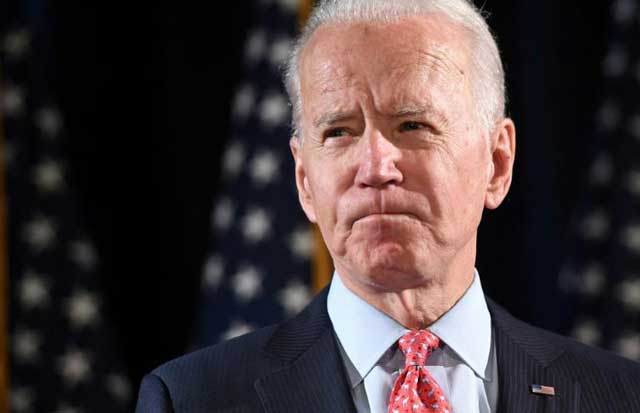
Biden will be remembered as another American president who preaches democracy while supporting repression
COMMENT | FAWAZ A. GERGES | As the war in Gaza enters its fourth month, many in the Middle East and across the Global South have been struck both by the ferocity of Israel’s military campaign and by Western governments’ unwavering support for it. To them, this is as much U.S. President Joe Biden’s war as it is Israeli Prime Minister Binyamin Netanyahu’s, and the continuing indifference to the scale of the devastation has reaffirmed how cheap Arab lives appear to be to Western leaders.
For those who lived through the Cold War and witnessed how Western powers dealt with post-colonial states and their peoples, recent events are all too familiar. As I argue in my new book, What Really Went Wrong: The West and the Failure of Democracy in the Middle East, the United States and other Western countries, mainly the United Kingdom, have for nearly a century pursued an interventionist, militaristic, and anti-democratic foreign policy that largely ignores Middle Eastern peoples’ interests. If anything, Western decisions have been driven historically by the desire to roll back communism and secure the dominance of liberal capitalism.
In pursuit of these twin aims, the U.S. offered Middle Eastern leaders a zero-sum choice: either join in Western-led regional defense alliances and open your economy to global capital, or be considered a foe. In the name of maintaining stability and securing an uninterrupted flow of cheap oil, Western powers struck devil’s pacts with Middle Eastern autocrats and actively contributed to the demise of incipient democratic movements.
Notably, in the early 1950s, when the liberal democrat Mohammed Mossadegh became prime minister of Iran and nationalised the country’s oil, the CIA and MI6 orchestrated a coup and replaced him with the Shah. That self-interested intervention arrested Iran’s democratic development and set the stage for the 1979 Islamic Revolution, which ushered in the theocratic regime that rules to this day.
Similarly, in the 1950s, Gamal Abdel Nasser, a charismatic leader who was positively disposed toward the U.S., became president of Egypt and decided that it was not in his country’s interest to join a Western-led defense pact. Seeking to humiliate him and force his ouster, America and Britain rescinded support for the massive Aswan High Dam project on the Nile River. What resulted was the Suez Crisis of 1956, which almost caused a world war. In the end, the most popular leader of the most populous Arab state became a bitter enemy of the West.
While the US-led West has certainly taken a heavy-handed approach in other regions as well, Western officials have long rationalised their neo-imperial mission in the Middle East by claiming that the combination of Islam and Arab culture is incompatible with democracy. The implication is that brutal strongmen are essential to the stability that the West so values.
The lesson for those strongmen has been unambiguous: repression and human-rights abuses will be ignored as long as America’s orders are followed. For the people of the region, the lesson has been no less plain: their lives and rights mean little in the West’s calculus – notwithstanding all its lofty rhetoric about democracy and the rule of law. The invasion and decades-long occupation of Afghanistan and Iraq made that abundantly clear.
Barack Obama was the first U.S. president to hint at a different approach. Speaking at the U.S. Military Academy at West Point in 2014, he decried America’s perpetual wartime footing and tendency to shoot first and ask questions later. America’s costliest mistakes in the region had come not from restraint, he argued, but from the “willingness to rush into military adventures without thinking through the consequences – without building international support and legitimacy for … action; without leveling with the American people about the sacrifices required.”
Sadly, Obama’s sober perspective appears to be lost on Biden, who belongs to the Cold War generation of American leadership. Until last October, Biden had devoted little time or attention to the Israeli-Palestinian conflict. He readily accepted the untenable status quo of perpetual Palestinian suffering, and focused instead on trying to expand the Abraham Accords. Those agreements, brokered by the Trump administration, sought to normalise Israel’s relations with Arab autocrats in exchange for security assistance and protection, thereby ending the region’s commitment to Palestinian statehood.
Since Hamas’s brutal attack on October 7 – which exposed the folly of Biden and Netanyahu’s approach – there has been neither restraint nor an effort to think through the consequences of the current war. Instead, Biden and his European allies have wholeheartedly endorsed Israel’s all-out assault on Gaza. Even as the civilian death toll has risen at an unprecedented pace, the humanitarian crisis grows more acute by the day, and governments around the world have called for a ceasefire, Biden has shown no willingness to intervene to stop the bloodshed.
Meanwhile, skirmishes on the Israel-Lebanon border and US-led airstrikes on Houthi positions in Yemen and on Iranian-backed militias in Iraq suggest that the conflict may yet escalate further. America and Britain are gradually being sucked into the region yet again, though with eyes wide open this time. Biden claimed to represent a clean break from Trump, but there is no daylight between them when it comes to the Middle East. There and in much of the Global South, Biden will be remembered as just another American president who devalued Arab lives, preaching democracy while supporting repression and violence.
Biden may soon regret his wholehearted embrace of Netanyahu in recent months. Netanyahu, an expert at manipulating the American political process, recently rebuffed Biden’s support for establishing a Palestinian state, insisting that Israel must have security control “over all the territory west of the Jordan (River).” That pronouncement was timed to the start of the US presidential campaign, in which Trump is his preferred candidate.
Even if Biden ultimately secures a second term, the tragic irony is that the Middle East is less stable today than at any point in its modern history. The West’s strategy has been a colossal failure, and this legacy will burden our world for a very long time.
*****

Fawaz A. Gerges, Professor of International Relations at the London School of Economics, is author of the forthcoming `What Really Went Wrong: The West and the Failure of Democracy in the Middle East’ (Yale University Press, 2024).
Copyright: Project Syndicate, 2024.
 The Independent Uganda: You get the Truth we Pay the Price
The Independent Uganda: You get the Truth we Pay the Price


